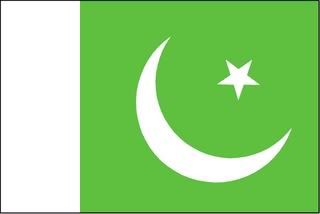A little bit of history to explain the animosity between Musharraf and Sharif:Islamabad, August 26: Refusing to abide by the recent Supreme Court judgement, President Pervez Musharraf has said that exiled former Prime Minister Nawaz Sharif would not be allowed to return to Pakistan to take part in the general elections slated for later this year.
"The government will neither allow the Sharif brothers to come back nor would they be given a free hand if they chose to return. If Nawaz Sharif is not honouring his 'exile' deal, the government will put him behind bars or send him back to Saudi Arabia," The News quoted Musharraf as saying here.
Considering petitions filed by the deposed Premier and his brother Shahbaz Sharif, the apex court had ruled on Thursday that they were free to return to the Islamic nation after seven years in "forced" exile.
Musharraf yesterday held an emergency meeting of the ruling party MPs at the Presidency here amid reports that Sharif might return home possibly by next month to lead Pakistan Muslim League-Nawaz's campaign in the general polls in Pakistan.
Sharif came to power in 1990, running on a platform of conservative politics with the intentions of wiping out corruption in Pakistan. But his term was cut short in 1993 when the presiding president of Pakistan, Ghulam Ishaq Khan, dissolved the National Assembly and placed his own caretaker prime minister in Sharif's place. Although the Supreme Court eventually overruled this move by Khan, Sharif was indignant and resigned, leaving the way open for the election of the first woman prime minister of Pakistan- Benazir Bhutto, in 1993.As other ex-leaders circle around:
The nature of Pakistani politics is less than transparent and corruption is endemic- no matter who sits in the executive mansion. Within a few years, Bhutto had also fallen out of favor- corruption being the common parole at election time- and Sharif was returned to power in an overwhelming vote of support in 1997. This time, the returning prime minister left nothing to chance, and proceeded to alter the constitution in a way that left virtually no possibility of removing him in a vote of no confidence. Securely in his position, it was Sharif who pursued the ultimate achievement of Pakistani foreign policy: on May 28, 1998, he oversaw the explosion of the country's first nuclear device, which was an act of retribution for India's trial explosion two weeks earlier, and it was with this event that Sharif's height of power was achieved.
It was also the zenith of his popularity, for after this, it was all down hill for Sharif. Over the course of his term of office, he had fallen out with several army officers who were trying to reassert military prominence in the decision-making process in Pakistan's highest office. Sharif dismissed them all, and finally he replaced the incalcitrant generals with the one person who would orchestrate Sharif's downfall: General Pervez Musharraf.
Following the nuclear tests, financial deterioration set in as President Clinton was forced to introduce sanctions on Pakistan for its nuclear crime. As a result, it was widely believed that the military would intervene in politics, and Sharif decided to counter any such move by relieving Musharraf of his duties while he was out of the country. Having heard of his termination, Musharraf boarded a commercial airliner and returned to Pakistan, but Sharif ordered the airport to deny landing rights to the plane. Musharraf was able to contact key officers on the ground, and within hours they had successfully overthrown Sharif and Musharraf landed safely but with little fuel to spare.
Thus defined, we can now understand the animosity shared between the two men, but we must also add that Musharraf had seen to the conviction of Sharif for crimes against the state, but it was decided to trade the sentence of life imprisonment for political exile in Saudi Arabia. But Musharraf's power has since then waned- evident in the court's overturning of the sentence of exile- and Sharif is due to return to Pakistan to wide public jubilation. He has allied himself with conservative Muslim groups who are miffed at the country's close ties to the US, and with the support of his native state of Punjab, Sharif looks like a candidate to be reckoned with.
Washington, August 25: Former Prime Minister Benazir Bhutto has said that in the event of the much touted 'deal' with President Pervez Musharraf failing to materialize, she might join hands with PML-N leader Nawaz Sharif if he agrees to part ways with the Islamist Muttahida Majlis-e-Amal.Musharraf may not last much longer, especially when the U.S. is stepping back:
Bush administration is prodding Pakistan's Pres Gen Pervez Musharraf, who is mired in political crisis, to share authority with his longtime rival and former Prime Min Benazir Bhutto; Musharraf has lost so much domestic support that administration thinks alliance may be his best chance for remaining president; many in Pakistan voice doubts about workability and political wisdom of such deal; US officials say power sharing that might install Bhutto as prime minister could help defuse confrontation in which Musharraf has already considered invoking emergency powers; say they fear that Musharraf could eventually be replaced by leader who is less reliable ally.Just remember why the U.S. is mucking about with Pakistan... Pakistan has an active Islamic militant faction, a corrupt government, a porous border, ongoing arguments with all its neighbors especially India, and ... nukes.

1 comment:
...and I feel fine....
Post a Comment